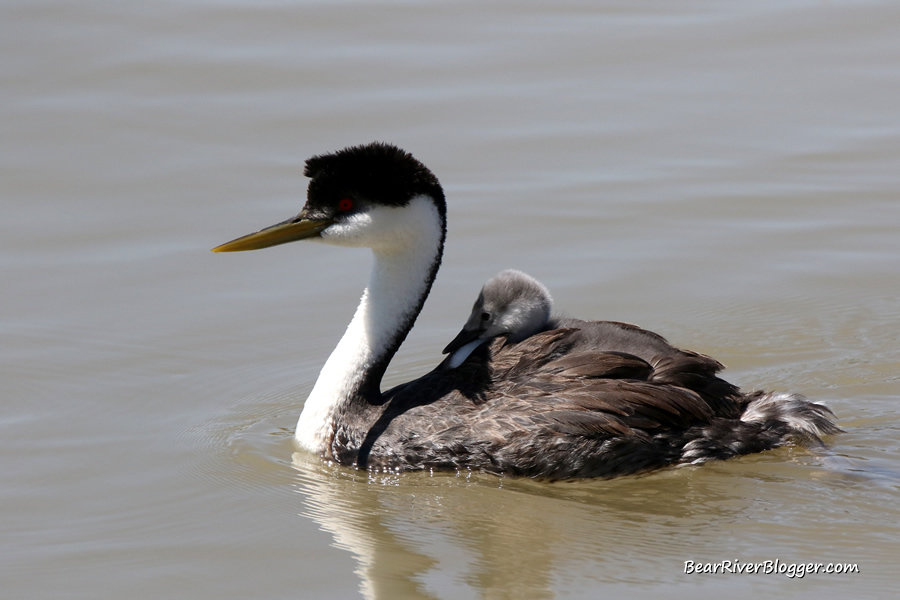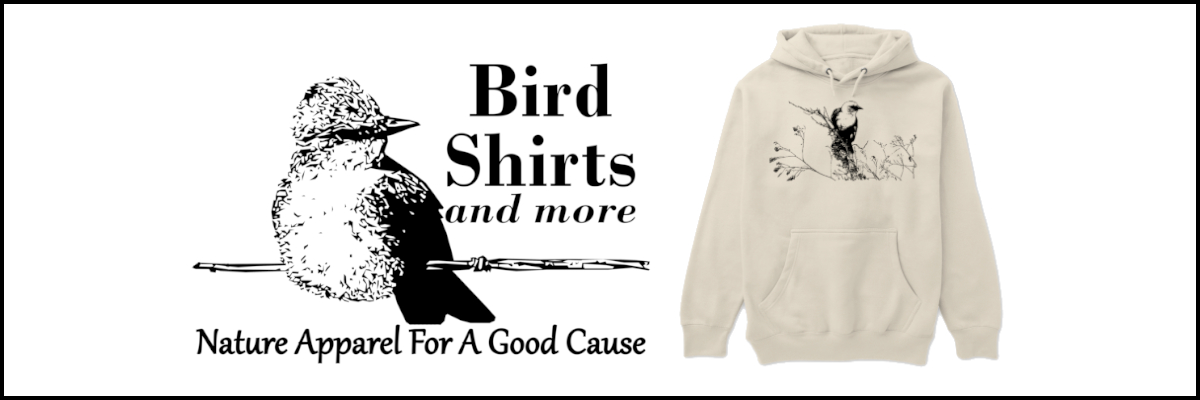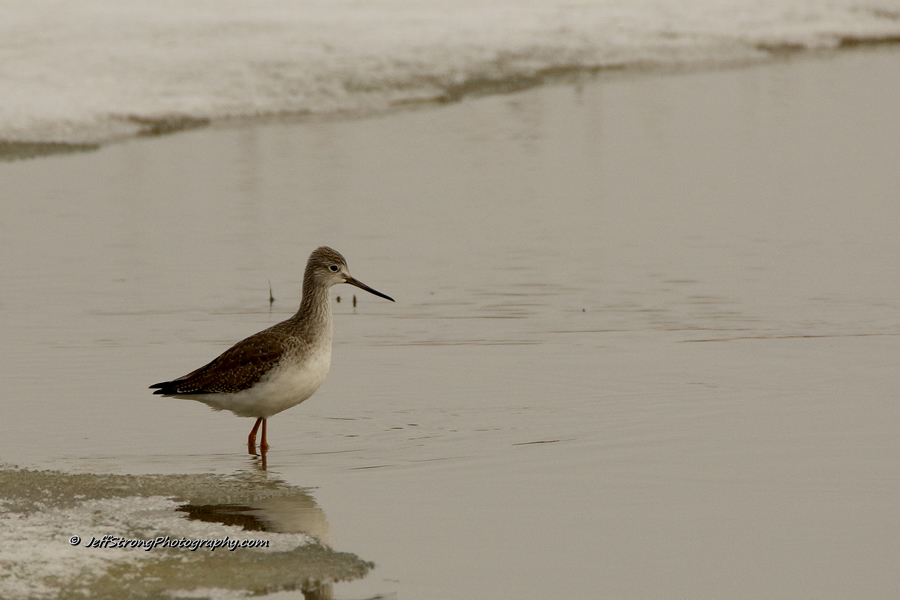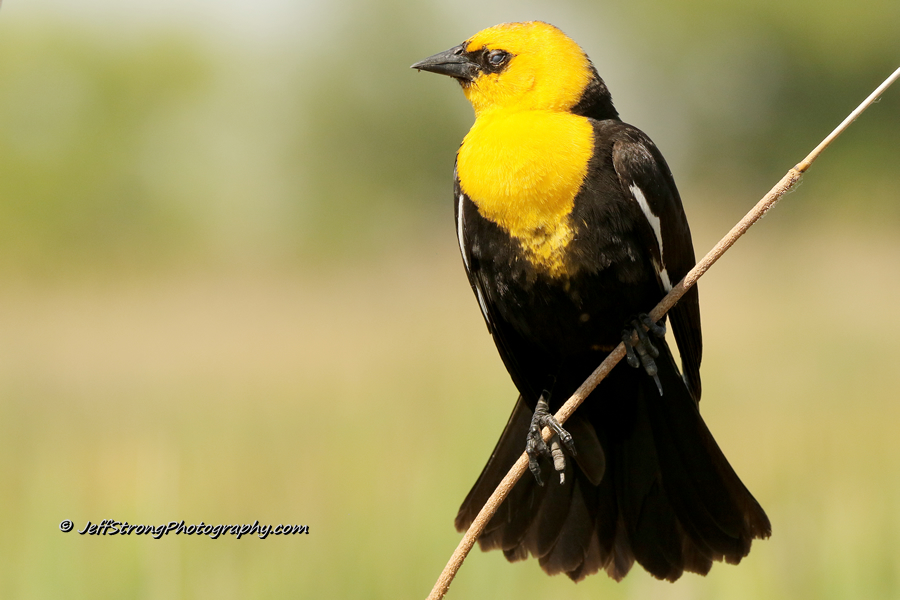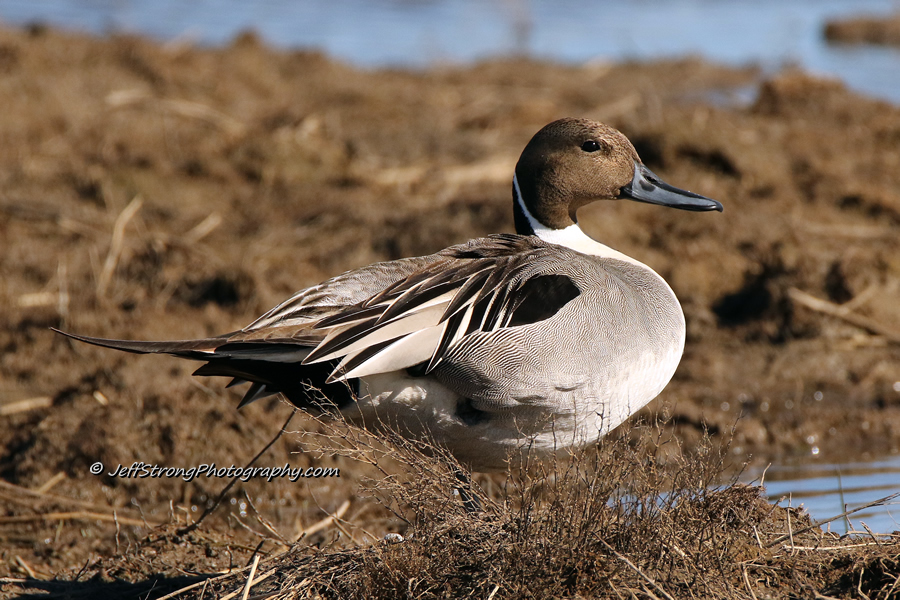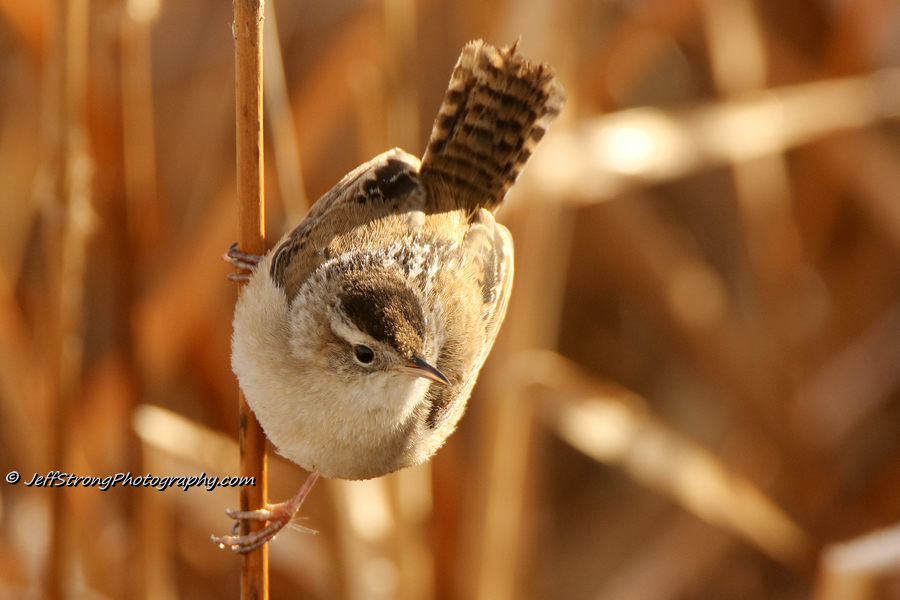Without a doubt, the number one question I get from fellow birdwatchers who follow my blog is when the grebe babies are out and about and can easily be found on the Bear River Migratory Bird Refuge.
Well, my friends, that time is now as baby grebes, including both Clark’s and western grebes, are making their presence known on the refuge auto tour route.
I saw my first-of-the-year western grebe baby about 2 weeks ago on the refuge and now I’m consistently seeing both Clark’s and western grebe chicks on every trip around the auto tour route.
July is when grebe babies are typically found on the Bear River Migratory Bird Refuge auto loop and the best place to consistently view and photograph the adorable chicks is on the southern and southeastern portions of the refuge’s 12-mile self-guided auto tour route.
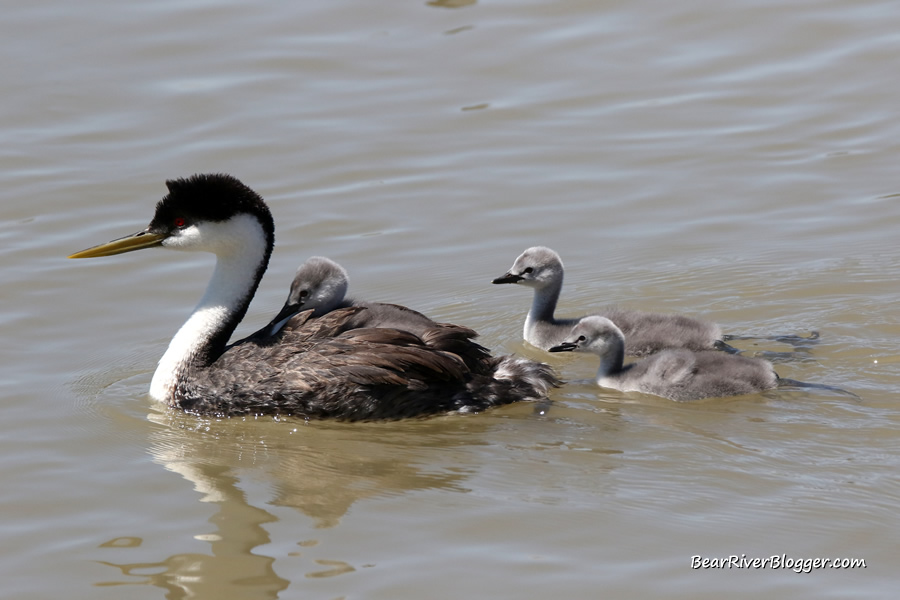
Both western and Clark’s grebes migrate to the Bear River Migratory Bird Refuge each spring to nest and breed another generation of birds and during the summer months.
And typically during the month of July with the occasional overlap into early August, birdwatchers such as you and I can come and enjoy the baby grebes along certain portions of the auto loop.
Grebes, both western and Clark’s, are some of the few bird species where the young chicks will climb aboard and ride on their parents’ backs for a few weeks.
Sometimes as many as two and occasionally three very young grebe chicks can be found comfortably nestled in their parents’ feathers as they casually swim by for a photograph or two.
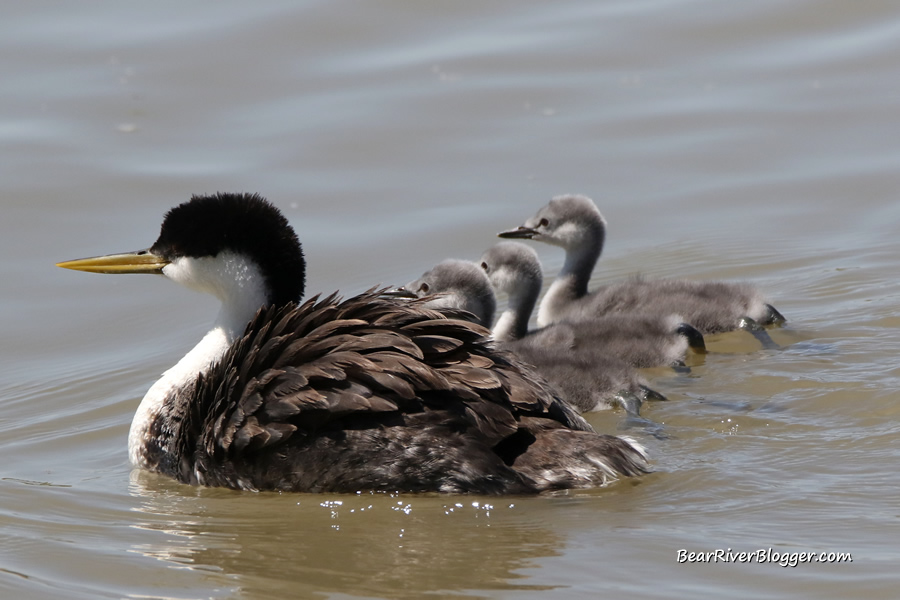
But once the chicks start to grow and get a little bit bigger in size, however, they are no longer allowed by the parents to climb aboard but can oftentimes be seen tagging along somewhere in close proximity to their parents.
Western grebes are found in wetlands and large freshwater lakes adorned with reeds and other wetland vegetation, including the Bear River Migratory Bird Refuge, for example, in the more westerly portions of the United States and Canada during the breeding season and migrate back to the west coast and portions of Mexico for the winter months.
One of the best places to go birdwatching for both ‘species of grebes during the breeding season is, in fact, the Bear River Migratory Bird Refuge auto tour route as the large open water habitat and an endless supply of small fish offer a superb nesting and rearing environment for grebes during the summer.
In addition to birdwatching, this portion of the refuge also gives the photographer ample opportunities to photograph baby grebes during the summer months.
As a matter of fact, all of the images for this particular blog post (including the small photo gallery below) were taken last week on the Bear River Migratory Bird Refuge where numerous grebes with chicks were easily seen and photographed on the southern portion of the auto tour route.
If you’re like me and enjoying a little birdwatching with baby grebes is on your to-do list for the summer, now is the time to view and photograph baby grebe chicks on the Bear River Migratory Bird Refuge auto tour route as for the next several weeks’ grebes and their babies will be out and about on portions of the auto loop for both the birdwatcher and photographer alike to enjoy.
As always for the birdwatchers and nature lovers out there, I offer you to head on over to our subscribe page and sign up for email notifications for future blog posts about our birdwatching and nature-related excursions on both the Bear River Migratory Bird Refuge and its surrounding areas.
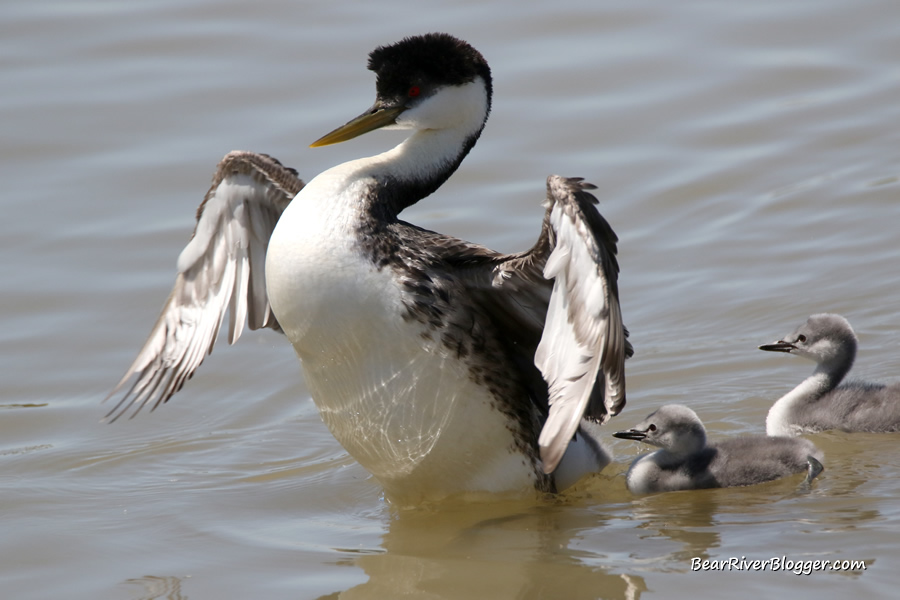
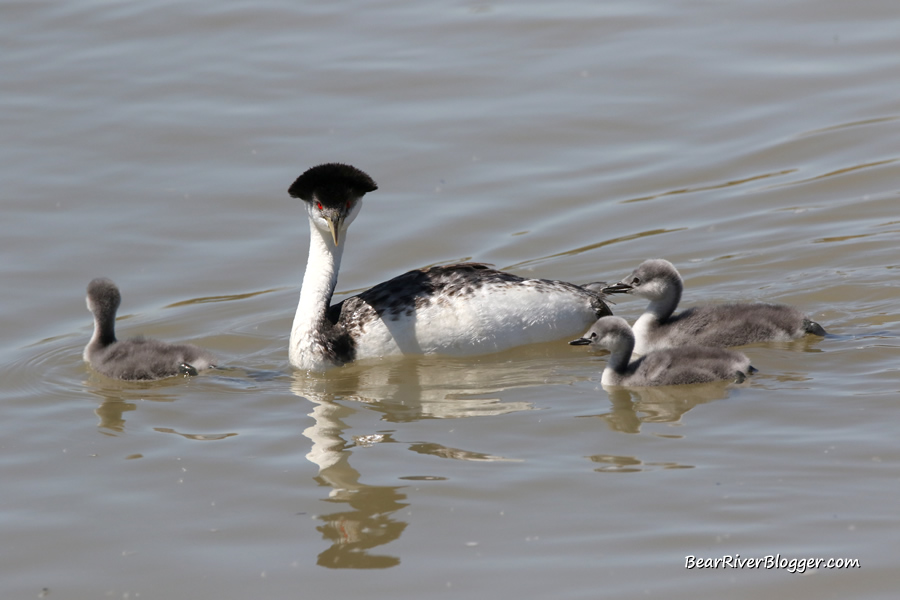
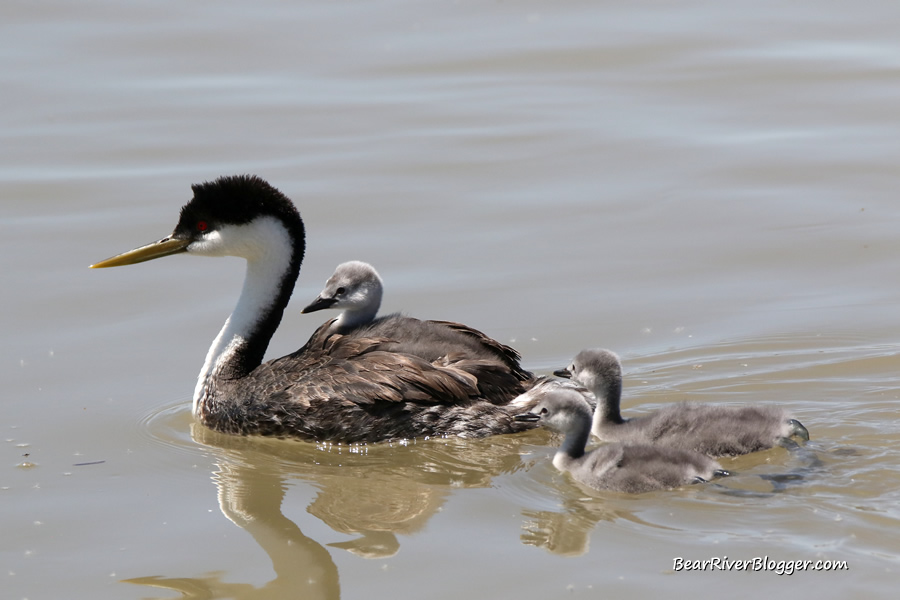
Follow Us On YouTube
(Migrating Snow Geese Close-up. For short nature clips like this one and interesting stories about the natural world around us, check out our Bear River Blogger channel on YouTube for videos and updates from our travels while out in nature, both on and off of the famed Bear River Migratory Bird Refuge.)

